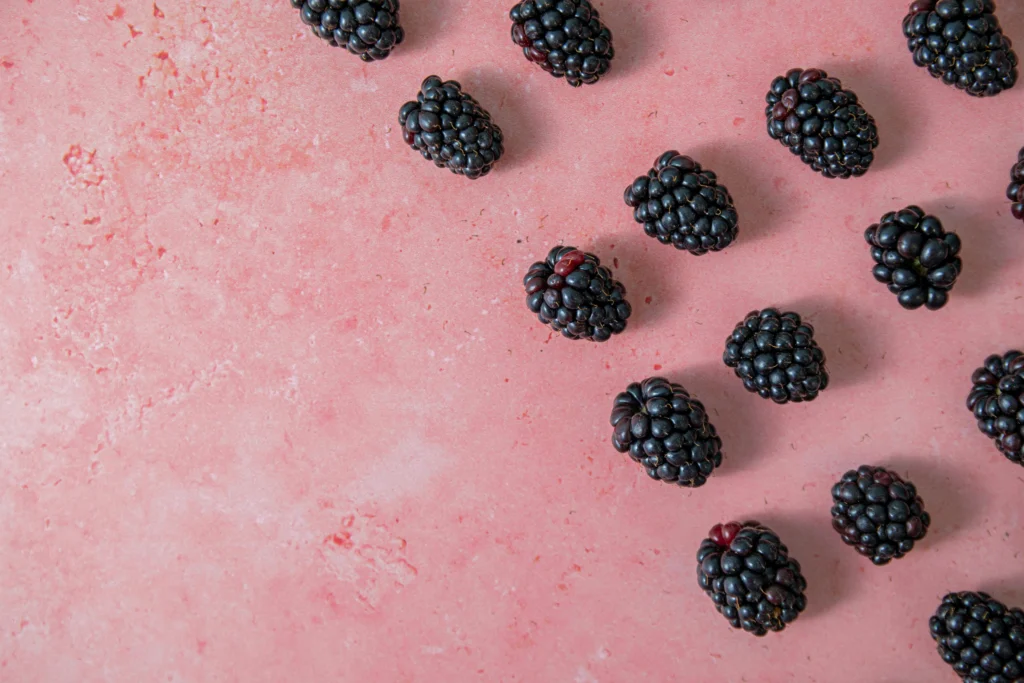Table of Contents
Introduction
The Best Diet for Fitness Training – Tips & Advice 2024 Did you know that the right diet can make or break your fitness training? It’s true! Eating the right foods, following effective diet plans, and maintaining healthy eating habits can have a significant impact on your performance and results. Nutrition plays a vital role in fueling your body, providing the necessary nutrients for exercise, supporting weight management, and optimizing your overall fitness journey. Best Diet for Fitness Training
In this article, we will explore the best diet for fitness training in 2024 and provide you with valuable tips and advice to help you achieve your fitness goals. From understanding the fundamentals of nutrition to meal planning for athletes and weight management solutions, we have you covered. Let’s dive in and discover how proper nutrition can take your fitness training to the next level. Best Diet for Fitness Training
Key Takeaways:
- Choosing the best diet for fitness training is crucial for optimal performance and results.
- Understanding the fundamentals of nutrition, including essential nutrients and macronutrients, is essential for fueling your body properly.
- Incorporating the five fundamentals of fitness, such as strength training and rest and recovery, can enhance your fitness training routine.
- Knowing the fundamentals of losing fat, including the role of a calorie deficit and portion control, can help you achieve your weight management goals.
- Proper fitness nutrition, including meal planning and nutrient timing, can significantly impact your athletic performance.
Understanding the Fundamentals of Nutrition

Before diving into diet plans and meal recommendations, it’s essential to understand the basics of nutrition. By grasping the fundamentals of food and nutrition, including essential nutrients, macronutrients, and micronutrients, you can fuel your body properly for fitness training.
Essential Nutrients for Optimal Performance
Essential nutrients are the building blocks of a healthy diet. They provide the body with the energy it needs to perform at its best. There are six essential nutrients that play a vital role in our overall health and well-being:
- Proteins
- Carbohydrates
- Fats
- Vitamins
- Minerals
- Water
The Role of Macronutrients
Macronutrients are nutrients that our bodies require in larger quantities. They provide the majority of our daily energy needs. The three macronutrients are:
- Proteins: Important for muscle growth and repair.
- Carbohydrates: The primary source of energy for the body.
- Fats: Essential for hormone production and nutrient absorption.
It’s important to understand the role of each macronutrient and how they contribute to our overall health and performance.
The Importance of Micronutrients
Micronutrients are nutrients that our bodies require in smaller quantities but are equally important for optimal health. They include vitamins and minerals, which play crucial roles in various bodily functions. Micronutrients support our immune system, aid in metabolism, and ensure proper cellular function. Best Diet for Fitness Training
| Micronutrients | Sources |
|---|---|
| Vitamin A | Carrots, sweet potatoes |
| Vitamin C | Citrus fruits, bell peppers |
| Calcium | Dairy products, leafy greens |
| Iron | Red meat, spinach |
By including a variety of nutrient-dense foods in your diet, you can ensure you’re getting the essential micronutrients your body needs for optimal performance.
Incorporating a well-balanced diet that provides both macronutrients and micronutrients is crucial for fueling your body properly and supporting your fitness training goals.
The 5 Fundamentals of Fitness
To enhance your fitness training, it’s crucial to grasp the five fundamentals of fitness. Incorporating these key elements into your fitness routine will lead to optimal results. The fundamentals of fitness include:
1. Strength Training
Strength training involves exercises that target your muscles, helping to build strength, endurance, and overall muscle mass. By incorporating strength training into your fitness routine, you can increase your metabolism, improve bone density, and enhance your overall physical performance. Best Diet for Fitness Training
2. Cardiovascular Exercise
Cardiovascular exercise, also known as aerobic exercise, is crucial for maintaining a healthy heart and improving cardiovascular endurance. Activities like running, swimming, and cycling get your heart rate up, improving oxygen and blood circulation while burning calories and aiding in weight loss or weight maintenance. Best Diet for Fitness Training
3. Flexibility Training
Flexibility training focuses on stretching exercises that improve your range of motion. Flexibility is essential for injury prevention, enhanced athletic performance, and improved posture. Incorporating exercises such as yoga or Pilates can help you increase flexibility and balance.
4. Rest and Recovery
Rest and recovery are essential components of any fitness training program. Giving your body time to rest and repair itself is crucial for muscle growth, injury prevention, and overall well-being. Getting adequate sleep, taking rest days, and employing recovery techniques like massage and foam rolling are vital for optimal fitness results.
5. Proper Nutrition
Proper nutrition is the foundation of any fitness training plan. Fueling your body with the right nutrients, including lean proteins, complex carbohydrates, and healthy fats, supports energy levels, muscle recovery, and overall performance. Eating a well-balanced diet and staying hydrated are essential for achieving your fitness goals. Best Diet for Fitness Training
| Fundamental | Description |
|---|---|
| Strength Training | Focuses on exercises that build muscle strength and endurance. |
| Cardiovascular Exercise | Involves activities that elevate heart rate and improve cardiovascular health. |
| Flexibility Training | Focuses on stretching exercises that improve range of motion and prevent injuries. |
| Rest and Recovery | Includes adequate rest, sleep, and recovery techniques to allow the body to repair and rebuild. |
| Proper Nutrition | Involves eating a well-balanced diet to support energy, muscle recovery, and overall performance. |
The Fundamentals of Losing Fat

For individuals looking to shed excess fat, understanding the fundamentals of losing fat is essential. Achieving weight loss goals requires a combination of strategies such as creating a calorie deficit, maintaining a balanced diet, and practicing portion control. By implementing these principles, you can embark on a successful fat loss journey. Best Diet for Fitness Training
Creating a Calorie Deficit
To lose fat, you need to consume fewer calories than your body burns, creating a calorie deficit. This deficit prompts your body to tap into its fat stores for energy, resulting in weight loss. Calculating your calorie needs and tracking your intake can help you maintain an appropriate deficit. Be mindful not to excessively restrict calories, as this can negatively impact your metabolism and overall well-being.
The Role of a Balanced Diet
A balanced diet is an essential component of a successful fat loss plan. It ensures you get the necessary nutrients while controlling your calorie intake. Include a variety of nutrient-dense foods such as lean proteins, whole grains, fruits, vegetables, and healthy fats. These foods provide satiety, support muscle maintenance, and promote overall health. Avoid excessive consumption of processed foods, sugary drinks, and refined carbohydrates, as they can hinder your weight loss progress. Best Diet for Fitness Training
The Importance of Portion Control
Portion control is vital for managing calorie intake and preventing overeating. Even healthy foods can contribute to weight gain if consumed in large quantities. Be mindful of portion sizes and listen to your body’s hunger and fullness cues. Incorporating strategies such as using smaller plates, measuring food portions, and practicing mindful eating can help you develop portion control habits for long-term fat loss success. Best Diet for Fitness Training
Remember, fat loss is a gradual process, and everyone’s journey is unique. Focus on sustainable habits, make gradual changes, and prioritize overall health and well-being. Consult a healthcare professional or registered dietitian for personalized guidance and support.
Proper Fitness Nutrition

When it comes to fitness training, proper nutrition is an essential component for achieving optimal performance. Your diet plays a crucial role in fueling your body, supporting muscle growth, enhancing recovery, and maximizing overall athletic potential. In this section, we will explore the key elements of fitness nutrition and provide strategies to help you optimize your diet for improved physical performance. Best Diet for Fitness Training
Meal Planning
Meal planning is a fundamental aspect of fitness nutrition. By carefully selecting and preparing your meals in advance, you can ensure that you’re fueling your body with the right nutrients at the right times. A well-planned meal plan can help you maintain consistent energy levels, support muscle growth and repair, and prevent nutritional deficiencies. Best Diet for Fitness Training
“Meal planning is a game-changer for anyone serious about their fitness goals. It allows you to take control of your nutrition, ensuring you have a balanced and nutrient-rich diet to support your training.” – Dr. Sarah Thompson, Certified Sports Nutritionist.
When creating your meal plan, focus on including a variety of nutrient-dense foods such as lean proteins, complex carbohydrates, healthy fats, and plenty of fruits and vegetables. Aim to consume meals that are well-balanced in terms of macronutrients, providing the right amount of protein, carbohydrates, and fats for your specific training goals.
Nutrient Timing
Nutrient timing refers to the strategic timing of nutrient intake to optimize athletic performance. Paying attention to when you eat certain nutrients can have a significant impact on your training outcomes. Two critical aspects of nutrient timing in fitness nutrition are pre-workout and post-workout nutrition.
Pre-workout nutrition involves consuming a balanced meal or snack before your training session to provide your body with the necessary fuel and energy. Ideally, your pre-workout meal should consist of carbohydrates for readily available energy, a moderate amount of protein to support muscle protein synthesis, and a small amount of healthy fats to slow down digestion and provide sustained energy. Best Diet for Fitness Training
Post-workout nutrition focuses on replenishing glycogen stores, repairing muscle damage, and promoting muscle protein synthesis. Consuming a combination of carbohydrates and protein within the first hour after your workout can enhance recovery, reduce muscle soreness, and support muscle growth.
Pre- and Post-Workout Nutrition Guidelines
| Pre-Workout Nutrition | Post-Workout Nutrition |
|---|---|
| Consume a balanced meal or snack 1-2 hours before exercise Choose easily digestible carbohydrates for quick energy Include a moderate amount of protein Incorporate a small amount of healthy fats Avoid heavy meals that may cause discomfort during exercise Stay hydrated by drinking water | Consume a combination of carbohydrates and protein within 1 hour after exercise Choose fast-digesting carbohydrates to replenish glycogen stores Include a sufficient amount of high-quality protein for muscle repair and growth Add a source of antioxidants to reduce exercise-induced inflammation Hydrate with fluids that contain electrolytes |
By focusing on nutrient timing and ensuring you’re adequately fueling your body before and after workouts, you can optimize your performance, enhance recovery, and achieve better results from your fitness training.
In conclusion, paying attention to fitness nutrition, including meal planning and nutrient timing, is crucial for maximizing your physical performance. By following a well-designed meal plan and strategically timing your nutrient intake, you can fuel your body effectively, support muscle growth and repair, and optimize your athletic potential. Best Diet for Fitness Training
Keeping a Food Diary

Maintaining diet accountability is crucial for achieving your fitness goals. One effective method to stay on track is by keeping a food diary. A food diary allows you to track your food intake, monitor your calorie consumption, and gain insightful knowledge about your eating habits. By utilizing a food diary, you can cultivate mindfulness around your meals and make more informed choices regarding your nutrition. Best Diet for Fitness Training
When tracking your food intake, it’s essential to record everything you consume throughout the day. This includes meals, snacks, and even beverages. By meticulously logging every item, you gain a comprehensive understanding of your dietary patterns and can identify any areas that need improvement. Best Diet for Fitness Training
Mindful eating is another important aspect of keeping a food diary. It involves being present and fully aware of your eating experience, paying attention to the taste, texture, and satisfaction derived from each bite. By practicing mindful eating, you can reduce mindless snacking and make intentional choices that align with your health and fitness goals.
“Keeping a food diary not only helps you stay accountable for your diet, but it also provides valuable insights into your eating habits. It allows you to identify potential areas for improvement, such as excessive snacking or emotional eating, which can impact your overall progress.”
Using a food diary can also serve as a form of self-reflection and motivation. As you review your entries each day, you can assess your progress, celebrate your successes, and identify any challenges or triggers that may hinder your diet accountability. This self-awareness fosters a sense of responsibility and empowers you to make better choices moving forward. Best Diet for Fitness Training
To make your food diary more manageable, consider using a mobile app or a traditional pen-and-paper format. Find a method that works best for you to ensure consistency and ease of use.
| Benefits of Keeping a Food Diary | Tips for Effective Food Tracking |
|---|---|
| 1. Increased diet accountability | 1. Record everything you eat and drink |
| 2. Improved awareness of eating habits | 2. Be consistent with entries |
| 3. Identification of trigger foods or emotional eating patterns | 3. Practice mindful eating |
| 4. Better understanding of portion sizes | 4. Review entries regularly for self-reflection |
| 5. Motivation and accountability for making healthier choices | 5. Choose a tracking method that suits you |
Calculating Calories

Understanding your calorie needs is essential for achieving your fitness and weight management goals. Calculating your calorie requirements involves determining your basal metabolic rate (BMR) and total daily energy expenditure (TDEE). By tracking your calorie intake, you can ensure that you are fueling your body appropriately for your fitness training. Best Diet for Fitness Training
Basal Metabolic Rate (BMR)
Your BMR is the number of calories your body needs to maintain basic bodily functions at rest. It represents the minimum amount of energy required to sustain life. Factors such as age, gender, height, weight, and body composition influence your BMR. Calculating your BMR provides a foundation for determining your calorie needs.
“Your Basal Metabolic Rate (BMR) is the number of calories your body needs to maintain basic bodily functions at rest.”
Total Daily Energy Expenditure (TDEE)
Your TDEE represents the total number of calories you burn in a day, accounting for your BMR as well as physical activity. It includes calories expended through exercise, movement, and other daily activities. To calculate your TDEE, you need to consider your activity level in addition to your BMR. Best Diet for Fitness Training
Calorie Tracking
Once you understand your BMR and TDEE, you can track your calorie intake to ensure that it aligns with your fitness and weight management goals. Calorie tracking involves monitoring the number of calories you consume from various foods and beverages throughout the day. By keeping a record of your calorie intake, you can make necessary adjustments to achieve the desired calorie deficit or surplus. Best Diet for Fitness Training
“Calorie tracking involves monitoring the number of calories you consume from various foods and beverages throughout the day.”
To support your calorie tracking efforts, you can use various methods such as mobile apps, online tools, or simply keeping a journal. These tools provide a convenient way to monitor your calorie intake and track your progress towards your fitness goals. Best Diet for Fitness Training
Weighing and Measuring Your Food
To achieve the right balance of macronutrients and ensure effective nutrition during fitness training, it’s important to accurately measure portion sizes, monitor your macronutrient intake, and practice portion control. Here’s how you can incorporate these practices into your diet:
Weighing Your Food
Weighing your food is an excellent way to track your calorie intake and maintain portion control. Use a food scale to measure the exact weight of each ingredient. By doing this, you can accurately calculate the nutritional content of your meals and make adjustments as necessary. Best Diet for Fitness Training
Measuring Portion Sizes
In addition to weighing your food, it’s essential to measure portion sizes. This helps you understand how much you’re consuming and ensures that you’re not overindulging. Use measuring cups and spoons to portion out your food according to recommended serving sizes.
Monitoring Macronutrient Intake
Alongside measuring portion sizes, it’s crucial to monitor your macronutrient intake. This involves tracking the amount of protein, carbohydrates, and fats you consume. By keeping a log of your macronutrients, you can ensure you’re meeting your nutritional goals and making adjustments as needed. Best Diet for Fitness Training
Practicing Portion Control
Portion control plays a significant role in maintaining a balanced diet. It helps prevent overeating and ensures that you’re getting the right amount of nutrients. Pay attention to the recommended portion sizes for different food groups and be mindful of your overall calorie intake. Best Diet for Fitness Training
Incorporating food weighing, portion sizes, food measurements, and portion control into your diet will support your fitness training goals and help you maintain a healthy and balanced lifestyle.
| Benefits of Weighing and Measuring Your Food | Tips for Portion Control |
|---|---|
| 1. Accurate tracking of calorie intake | 1. Use smaller plates and bowls to control portion sizes |
| 2. Ensures proper macronutrient distribution | 2. Eat slowly and savor each bite to feel satisfied |
| 3. Helps maintain a healthy weight | 3. Avoid distractions while eating to focus on portion sizes |
| 4. Promotes mindful eating | 4. Plan your meals in advance to prevent overeating |
| 5. Supports portion control and moderation | 5. Seek support from a dietitian or nutritionist for guidance |
Eating the Right Food
Making informed food choices is crucial when it comes to your fitness training diet. To fuel your body for optimal performance, it’s important to focus on consuming nutrient-dense foods that provide the necessary energy and nutrients. Incorporating a variety of healthy food choices will help you achieve the best results. Best Diet for Fitness Training
The Building Blocks of a Healthy and Balanced Diet
Eating a balanced diet is essential for overall health and well-being, as well as for supporting your fitness training. Here are the key components of a nutritious diet:
- Lean Proteins: Include lean sources of protein such as chicken, fish, tofu, and beans in your meals. Protein is crucial for muscle repair and growth.
- Complex Carbohydrates: Opt for whole grains, such as quinoa, brown rice, and whole wheat bread, which provide sustained energy for your workouts.
- Healthy Fats: Incorporate sources of healthy fats, such as avocados, nuts, and olive oil, into your diet. These fats support brain function and help with nutrient absorption.
- Fruits and Vegetables: Aim to include a variety of fruits and vegetables in your meals. They are rich in vitamins, minerals, and antioxidants that support immune function and overall health.
By incorporating these essential components into your diet, you’ll provide your body with the nutrients it needs to perform at its best during your fitness training sessions. Best Diet for Fitness Training
Did You Know? Nutrient-dense foods are those that provide a high amount of nutrients relative to their calorie content. By choosing nutrient-dense options, you can maximize your nutrition intake while managing your calorie intake.
| Food Group | Examples |
|---|---|
| Lean Proteins | Chicken breast, fish, tofu, lentils, Greek yogurt |
| Complex Carbohydrates | Quinoa, brown rice, whole wheat bread, sweet potatoes, oats |
| Healthy Fats | Avocado, nuts, seeds, olive oil, fatty fish (salmon, tuna) |
| Fruits and Vegetables | Spinach, broccoli, berries, apples, oranges |
Ensuring a mix of these nutrient-dense foods in your diet will give your body the necessary fuel to support your fitness training and help you achieve your goals.
Avoiding the Wrong Foods and Limiting Drinking
When it comes to optimizing your fitness training, making smart food choices and practicing moderation are key. Avoiding unhealthy options and limiting your intake of certain foods and beverages can greatly contribute to improved fitness and overall health. Let’s explore some common unhealthy food choices, such as processed foods, and discuss the importance of alcohol moderation and reducing sugary beverage consumption. Best Diet for Fitness Training
Unhealthy Food Choices
Processed foods can be detrimental to your fitness goals and overall well-being. They are often high in unhealthy fats, sodium, and added sugars while lacking essential nutrients. These types of foods typically include pre-packaged snacks, fast food, sugary cereals and drinks, and heavily processed meats. Best Diet for Fitness Training
“Processed foods are typically high in unhealthy fats, sodium, and added sugars while lacking essential nutrients.”
Instead of relying on processed foods, opt for nutrient-dense alternatives. Incorporate whole foods such as lean proteins, complex carbohydrates, healthy fats, and a variety of fruits and vegetables into your diet. These options are rich in vitamins, minerals, and antioxidants that can support your fitness training and overall well-being. Best Diet for Fitness Training
Alcohol Moderation
While it’s okay to indulge in the occasional alcoholic beverage, it’s important to moderate your intake for optimal fitness training. Alcohol provides empty calories, meaning it offers little to no nutritional value. Additionally, excessive alcohol consumption can hinder your progress due to its negative effects on sleep quality, muscle recovery, and hydration. Best Diet for Fitness Training
To maintain a healthy balance, try limiting your alcohol consumption and opting for healthier alternatives. Replace sugary cocktails with lower-calorie options such as light beer or wine, and consider incorporating alcohol-free days into your routine. Moderation is key when it comes to alcohol, ensuring that your fitness goals remain on track. Best Diet for Fitness Training
Reducing Sugary Beverage Consumption
Sugary beverages can be a hidden source of unnecessary calories and added sugars. Drinks like soda, fruit juices, sweetened teas, and energy drinks can quickly contribute to weight gain and diminished fitness performance. These beverages provide little to no nutritional value and can lead to energy crashes, increased cravings, and potential health issues. Best Diet for Fitness Training
To reduce your consumption of sugary beverages, opt for healthier alternatives such as water, unsweetened tea, or infused water with fresh fruits and herbs. These choices will not only hydrate you but also support your fitness goals by reducing unnecessary sugar intake and providing essential hydration for optimal performance. Best Diet for Fitness Training
| Unhealthy Food Choices | Alcohol Moderation | Sugary Beverage Reduction |
|---|---|---|
| Processed snacks | Empty calories | Soda |
| Fast food | Negative effects on sleep quality | Fruit juices |
| Sugary cereals | Impaired muscle recovery | Sweetened teas |
| Heavily processed meats | Hydration issues | Energy drinks |
By avoiding unhealthy food choices, moderating your alcohol intake, and reducing sugary beverage consumption, you can optimize your fitness training and prioritize your overall health and well-being. Making informed choices and practicing moderation will contribute to your long-term success in achieving your fitness goals.
Meal Frequency and Timing
The timing and frequency of your meals play a crucial role in optimizing your fitness training progress. Proper meal frequency and nutrient timing can enhance your energy levels, support muscle growth, and aid in muscle recovery. In this section, we will explore the importance of meal frequency, nutrient timing, and the timing of pre- and post-workout meals. Best Diet for Fitness Training
The Importance of Meal Frequency
Meal frequency refers to the number of meals and snacks you consume throughout the day. It is essential to evenly distribute your meals to provide a steady stream of nutrients to your body. Incorporating regular, balanced meals has several benefits:
- Steady energy levels: Eating frequent meals helps maintain stable blood sugar levels, preventing energy crashes and keeping you fueled during workouts.
- Increased metabolism: Regular meals can help boost your metabolism, as the body needs to burn calories to digest and absorb nutrients.
- Muscle preservation: Consuming protein-rich meals throughout the day can support muscle maintenance and growth.
While the number of meals may vary depending on personal preferences and lifestyle, aim for 4-6 smaller meals or snacks spaced evenly throughout the day. Best Diet for Fitness Training
Nutrient Timing for Optimal Performance
Nutrient timing refers to strategically timing your meals and snacks to maximize their benefits based on your workout schedule. Paying attention to pre- and post-workout nutrition can have a significant impact on your fitness training results:
Pre-workout meal: Consuming a meal or snack containing carbohydrates and protein before your workout can provide your body with the necessary fuel and optimize performance. Aim to have a pre-workout meal 1-3 hours before your exercise session. Best Diet for Fitness Training
Post-workout meal: After your workout, it’s crucial to replenish your body with nutrients to support muscle recovery and growth. A post-workout meal rich in protein and carbohydrates can help restore glycogen stores and facilitate muscle repair. Ideally, consume a meal within 1-2 hours after your workout. Best Diet for Fitness Training
Incorporating Healthy Snacking Habits
In addition to regular meals, healthy snacking can provide an extra boost of energy and essential nutrients throughout the day. Opt for nutrient-dense snacks that combine protein, carbohydrates, and healthy fats. Examples of healthy snacks include:
- Nut butter with apple slices
- Greek yogurt with berries
- Protein smoothie
- Nuts and seeds
By incorporating healthy snacking habits, you can maintain stable blood sugar levels and avoid excessive hunger, ultimately supporting your fitness training goals.
Remember, the ideal meal frequency and timing may vary for each individual based on factors such as activity level, goals, and personal preferences. It’s important to listen to your body and experiment to find what works best for you. Consulting with a registered dietitian or nutritionist can also provide personalized guidance for optimizing your meal frequency and timing to support your fitness journey. Best Diet for Fitness Training
| Key Points |
|---|
| Eat 4-6 smaller meals or snacks throughout the day to maintain steady energy levels, boost metabolism, and support muscle preservation. |
| Consume a pre-workout meal rich in carbohydrates and protein 1-3 hours before exercise to fuel your body for optimal performance. |
| Have a post-workout meal within 1-2 hours after your workout to replenish nutrients, support muscle recovery, and facilitate muscle growth. |
| Incorporate healthy snacks that combine protein, carbohydrates, and healthy fats to maintain stable blood sugar levels and provide sustained energy throughout the day. |
Putting All the Pieces Together: An Action Plan for You
Now that you have gained valuable knowledge about the best diet for fitness training, it’s time to put all the pieces together. This section provides an actionable plan for you to create a personalized diet plan based on your fitness goals. Follow the practical advice and recommendations to take your fitness training to the next level. Best Diet for Fitness Training
Your Personalized Diet Plan
Create a customized diet plan that aligns with your fitness goals and provides optimal nutrition to fuel your body. Consider the following steps:
- Evaluate your current fitness level: Assess your current fitness level and identify areas for improvement.
- Set specific goals: Determine what you want to achieve through your fitness training, whether it’s weight loss, muscle gain, or improved performance.
- Consult a professional: Seek guidance from a registered dietitian or nutritionist who specializes in fitness nutrition. They can help tailor a plan that meets your specific needs.
- Determine your calorie needs: Calculate your basal metabolic rate (BMR) and total daily energy expenditure (TDEE) to establish a calorie range for your personalized diet plan.
- Select nutrient-dense foods: Choose a variety of nutrient-dense foods to meet your macronutrient and micronutrient needs. Include lean proteins, complex carbohydrates, healthy fats, fruits, and vegetables.
- Plan your meals: Create a weekly meal plan that includes balanced meals and snacks. Consider nutrient timing and ensure you fuel your body before and after workouts.
- Track your progress: Keep a record of your food intake, exercise routines, and progress towards your goals. Use a food diary or a nutrition tracking app to stay accountable.
- Adjust as needed: Monitor your progress and make adjustments to your diet plan as necessary. Consult with your nutritionist to fine-tune your approach.
Remember, everyone’s body is unique, so it’s essential to personalize your diet plan according to your individual needs. Consistency and commitment to your plan are key to seeing long-term results.
Sample Meal Plan
| Meal | Time | Food Choices |
|---|---|---|
| Breakfast | 7:00 AM | Scrambled eggs, whole wheat toast, avocado |
| Snack | 10:00 AM | Greek yogurt with berries |
| Lunch | 12:30 PM | Grilled chicken breast, quinoa salad, mixed greens |
| Snack | 3:00 PM | Almonds and an apple |
| Pre-Workout | 5:30 PM | Protein shake, banana |
| Post-Workout | 7:30 PM | Salmon fillet, sweet potato, steamed broccoli |
| Dinner | 9:00 PM | Lean beef stir-fry with brown rice |
Note: This is a sample meal plan and may not be suitable for everyone. Adjust portion sizes and food choices based on your individual calorie and nutrient needs.
By following this action plan and creating a personalized diet plan, you’ll be on your way to achieving your fitness goals and optimizing your performance through proper nutrition.
Conclusion
Congratulations on gaining a comprehensive understanding of the best diet for fitness training. With the tips and advice provided in this article, you have the knowledge to unlock your full potential and achieve optimal performance through tailored nutrition for exercise. By maintaining healthy eating habits and consistently fueling your body with the right food choices, you can set yourself up for long-term success in your fitness journey. Best Diet for Fitness Training
Remember, nutrition plays a crucial role in supporting your fitness goals. It’s important to prioritize nutrient-dense foods, including lean proteins, complex carbohydrates, healthy fats, and a variety of fruits and vegetables. By making informed food choices, you can provide your body with the necessary fuel to perform at its best. Best Diet for Fitness Training
Additionally, consider the timing and frequency of your meals. Nutrient timing, such as consuming a pre-workout meal and a post-workout meal, can enhance your training and recovery. Snacking in between meals can also help maintain energy levels throughout the day.
FAQ
What is the best diet for fitness training?
The best diet for fitness training is one that provides the necessary nutrients to support your workouts and promote muscle growth and recovery. It should include a balance of macronutrients (protein, carbohydrates, and healthy fats) and a variety of micronutrients from whole foods. Best Diet for Fitness Training
How do I effectively plan my meals for fitness training?
To effectively plan your meals for fitness training, start by identifying your calorie and macronutrient needs. Then, create a meal plan that includes a mix of lean proteins, complex carbohydrates, healthy fats, and plenty of fruits and vegetables. It’s also important to consider nutrient timing, such as having a pre- and post-workout meal. Best Diet for Fitness Training
What are some healthy eating habits to incorporate into my fitness training?
Some healthy eating habits to incorporate into your fitness training include staying hydrated, eating regular meals and snacks to maintain energy levels, focusing on whole and minimally processed foods, practicing portion control, and listening to your body’s hunger and fullness cues. Best Diet for Fitness Training
How can nutrition impact my exercise performance?
Nutrition plays a crucial role in exercise performance. Proper nutrition provides the necessary fuel for your workouts, supports muscle growth and repair, improves recovery, enhances endurance, and helps maintain a healthy body composition. It can also boost immune function and overall well-being. Best Diet for Fitness Training
What are some weight management solutions for fitness training?
Some weight management solutions for fitness training include maintaining a calorie deficit to lose weight, monitoring portion sizes, practicing mindful eating, prioritizing nutrient-dense foods, and engaging in regular physical activity that combines cardiovascular exercise and strength training. Best Diet for Fitness Training
How do I keep a food diary?
Keeping a food diary involves recording everything you eat and drink throughout the day. You can use a physical journal or a mobile app to track your meals, snacks, and beverages. Be sure to include portion sizes and any relevant details, such as the time of day or your hunger and fullness levels.
How do I calculate my calorie needs for fitness training?
To calculate your calorie needs for fitness training, you can use formulas such as the basal metabolic rate (BMR) equation or the total daily energy expenditure (TDEE) equation. These formulas take into account factors like age, gender, weight, height, and activity level to estimate your calorie requirements.
Why is portion control important for fitness training?
Portion control is important for fitness training because it helps ensure you’re consuming the right amount of nutrients to support your goals. Proper portion sizes prevent overeating and can help prevent weight gain or promote weight loss. It also allows you to distribute your calorie intake throughout the day for sustained energy.
What are some healthy food choices for fitness training?
Healthy food choices for fitness training include lean proteins (such as chicken, fish, tofu, or legumes), complex carbohydrates (like whole grains, sweet potatoes, or quinoa), healthy fats (such as avocado, nuts, and seeds), and a variety of fruits and vegetables for essential vitamins and minerals.
Which foods should I avoid or limit during fitness training?
During fitness training, it’s best to avoid or limit foods that are high in added sugars, processed ingredients, unhealthy fats, and excess sodium. Examples include sugary snacks and beverages, fast food, fried foods, and packaged snacks with artificial additives.
How does meal frequency and timing affect fitness training?
Meal frequency and timing can have an impact on fitness training. Eating regular meals and snacks throughout the day helps maintain stable energy levels and supports muscle recovery. Nutrient timing, including consuming a balanced meal or snack before and after workouts, can help maximize performance and recovery.
What should I include in my personalized action plan for fitness nutrition?
In your personalized action plan for fitness nutrition, include specific goals, a meal and snack schedule, a list of preferred healthy food choices, an exercise routine, hydration guidelines, and strategies for overcoming challenges or setbacks. Regularly review and adjust your plan based on your progress and changing needs.
What is the significance of a healthy diet for fitness training?
Maintaining a healthy diet is crucial for fitness training as it provides the necessary nutrients to fuel workouts, promotes muscle growth and repair, aids in recovery, supports overall health, and helps achieve fitness goals. A balanced and nutrient-dense diet is essential for optimal performance and long-term well-being.
